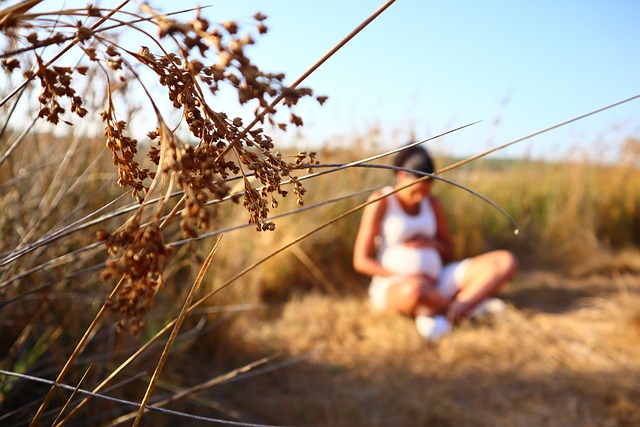It was the longest three minutes of her life. As she opened her eyes to look at the test, her heart seemed to stop. She couldn’t breathe. In a panic, she tore the instructions that came with the test, trying to confirm what she already knew. She was pregnant. Leaning her head against the bathroom stall, tears threatened to spill. Just then, the bell rang, signaling the end of lunch. Time to head to class. But all she could think was, “I’m only 16…”
May is National Teen Pregnancy Prevention Month, making it a perfect time to focus on the unique challenges young mothers face when they find themselves expecting. Teenage pregnancy brings a whirlwind of emotions and practical concerns, from “How will I finish school?” to “What will my parents think?” and even deeper thoughts like, “Should I raise this baby?” or “Could I inadvertently harm my baby in any way?”
It’s no surprise that teens are at high risk for misinformation from various sources, including the internet, friends, and media. This is truly concerning – both for the mother and her baby. When a soon-to-be mom reaches out to me through a call, in my office, or via email, I feel a sense of relief. She has found a trustworthy resource to help navigate the significant questions that can alter her life.
Our service provides up-to-date, evidence-based information for mothers and healthcare professionals regarding potentially harmful exposures during pregnancy and breastfeeding. Every question we receive is carefully researched by professionals. From inquiries about bug spray to illegal drugs, we’ve seen it all! So, what are some common questions I get from young mothers?
Common Questions from Young Mothers
ALCOHOL
“Can I drink any amount of alcohol during pregnancy?” The answer is no. No amount of alcohol is considered safe. Babies exposed to significant alcohol can be at risk for Fetal Alcohol Spectrum Disorders (FASD), which may manifest as birth defects, intellectual disabilities, learning issues, and behavioral disorders.
CIGARETTES
“Why can’t I smoke while pregnant?” Cigarette smoke contains over 4,000 chemicals and toxins. Many of these can cross the placenta, reducing oxygen and nutrients available to the baby. Studies show that heavy smoking during pregnancy increases the risk of oral clefts in newborns and raises the likelihood of premature birth, low birth weight, or miscarriage. Long-term effects can include heightened risks of asthma, bronchitis, respiratory infections, and ADHD. It’s never too late to quit – even reducing daily cigarettes can help!
MARIJUANA
“I’ve heard it’s okay to smoke marijuana during pregnancy. Is this true?” There is mixed information regarding marijuana’s effects. Some studies suggest it might not be linked to a higher risk of birth defects, but there isn’t enough data to be completely certain. Furthermore, cognitive and behavioral issues are more frequently reported in children whose mothers were heavy marijuana users. Again, the evidence is inconclusive, and using marijuana heavily during pregnancy can lead to similar concerns as smoking cigarettes.
METHAMPHETAMINES
“I’ve used meth in the past. Is it okay to use it occasionally while pregnant?” Absolutely not. Methamphetamine use during pregnancy is linked to increased risks of premature birth and miscarriage. Babies born to mothers who used meth may show withdrawal symptoms. There’s not enough data to determine if meth use raises birth defect risks, but heavy usage can lead to learning challenges.
There’s no doubt that the journey ahead will come with many more questions for a young parent, but I like to think that receiving reliable, personalized risk assessments about exposures during pregnancy is just the start of an essential support system she builds for herself.
So, if you’re curious about developmental delays in toddlers, check out our other blog post for insights on this topic. And if you’re considering home insemination, you can find valuable resources and kits at Make a Mom which can guide you through the process. For more excellent resources on pregnancy, visit WHO’s pregnancy page.
In summary, it’s crucial for young mothers to seek accurate information about pregnancy and potential risks. Having support and resources can empower them to make informed decisions for themselves and their babies.

